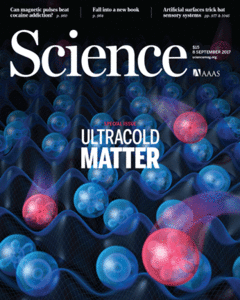 A commonly used questionnaire designed to predict how well patients will stick to their drug regimen is stirring up some controversy in the publishing world. Continue reading Pay to play: Scientists are bristling over the cost of a common research tool
A commonly used questionnaire designed to predict how well patients will stick to their drug regimen is stirring up some controversy in the publishing world. Continue reading Pay to play: Scientists are bristling over the cost of a common research tool
Author: Alison McCook
Copenhagen revokes degree of controversial neuroscientist Milena Penkowa
 The University of Copenhagen has stripped Milena Penkowa of her doctoral degree, after determining she had covered up problems with her research.
The University of Copenhagen has stripped Milena Penkowa of her doctoral degree, after determining she had covered up problems with her research.
According to a release issued today by the university, Penkowa falsified documents to allay suspicions that she had not performed some animal experiments as she’d reported.
This development is the latest in a long story: In 2015, the Copenhagen City Court ruled that Penkowa had forged experiments as part of her thesis, and handed her a nine-month suspended sentence. Penkowa appealed that ruling, and last year, another court dismissed the most serious charges.
But there was enough evidence for the University of Copenhagen’s Faculty’s Academic Council to vote unanimously last week to revoke her degree:
Continue reading Copenhagen revokes degree of controversial neuroscientist Milena Penkowa
What should a journal do when a scientist who committed misconduct submits a new paper?

In December of last year, Chris Surridge found himself in a situation not uncommon to journal editors: A researcher who had been found to have committed misconduct had submitted a manuscript to the journal Surridge edits, Nature Plants. Retraction Watch readers may recall the name of the corresponding author, Patrice Dunoyer, who has had five papers retracted and five corrected following an investigation into work out of the Olivier Voinnet lab.
So what to do? The journal accepted the paper in May, and published it in June, along with a thoughtful editorial likening prizes and cheating in science to those phenomena in sports. The editors, according to the editorial, “treated the study we received as we would any other.” We asked Surridge to answer a few questions about the episode.
Retraction Watch (RW): Was there some internal debate about whether to consider publishing a paper by Dr. Dunoyer? Did you personally hesitate? Why or why not? Continue reading What should a journal do when a scientist who committed misconduct submits a new paper?
Hey, that’s my case study: Another retraction after doctors claim rights to case write-up
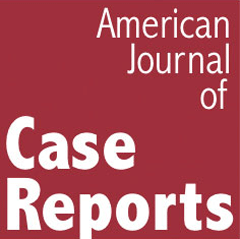 A group of researchers have retracted their 2016 case report about a rare dermatologic disorder in the wake of disputes about authorship and institutional approval.
A group of researchers have retracted their 2016 case report about a rare dermatologic disorder in the wake of disputes about authorship and institutional approval.
The paper describes a young boy with Job’s Syndrome, in which patients experience painful, itchy and frequently disfiguring skin lesions, along with a constellation of other possible symptoms. The condition is extremely rare, occurring in less than one in 1 million births.
This isn’t the first time a journal has retracted a case study after another group of authors claimed ownership of the case. Earlier this year, we covered a retraction from a neuro-ophthalmology journal after the doctors who treated a patient suffering from a gruesome eye trauma took issue with the fact that radiologists had already published their diagnostic images as a case study.
According to the notice for this latest retraction:
One way to boost your uni’s ranking: Ask faculty to cite each other
 Readers who follow scientific publishing will know the term “citation stacking” — as a profile-boosting technique, we’ve seen journals ask authors to cite them, and individual scientists work together to cite each other, forming “citation cartels.” And now, we’ve seen a university do it.
Readers who follow scientific publishing will know the term “citation stacking” — as a profile-boosting technique, we’ve seen journals ask authors to cite them, and individual scientists work together to cite each other, forming “citation cartels.” And now, we’ve seen a university do it.
A university in Malaysia has instructed its engineering faculty to cite at least three papers by their colleagues; the more citations a university accrues, the better its ranking in many international surveys. We obtained the original notice, dated August 3 and released by the University of Malaya, and translated it via One Hour Translation. Our English version says:
Continue reading One way to boost your uni’s ranking: Ask faculty to cite each other
Journal knew about problems in a high-profile study before it came out — and did nothing for over a month
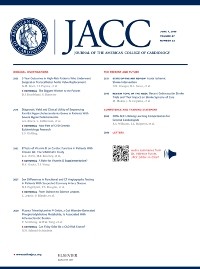 In June, Gene Emery, a journalist for Reuters Health, was assigned to write a story about an upcoming paper in the Journal of the American College of Cardiology, set to come off embargo and be released to the public in a few days. Pretty quickly, he noticed something seemed off.
In June, Gene Emery, a journalist for Reuters Health, was assigned to write a story about an upcoming paper in the Journal of the American College of Cardiology, set to come off embargo and be released to the public in a few days. Pretty quickly, he noticed something seemed off.
Emery saw that the data presented in the tables of the paper — about awareness of the problem of heart disease among women and their doctors — didn’t seem to match the authors’ conclusions. For instance, on a scale of 1 to 5 rating preparedness to assess female patients’ risk (with 5 being the most prepared), 64% of doctors answered 4 or 5; but the paper said “only a minority” of doctors felt well-prepared (findings echoed in an accompanying press release). On Monday June 19, four days before the paper was set to publish, Emery told the corresponding author — C. Noel Bairey Merz, Medical Director of the Women’s Heart Center at Cedars-Sinai in Los Angeles — about the discrepancy; she told him to rely on the data in the table.
But the more Emery and his editors looked, the more problems they found with the paper. They alerted the journal hours before it was set to publish, hoping that was enough to halt the process. It wasn’t.
Recent finding of misconduct by federal U.S. agency sparks debate

In 2011, the University of Florida assembled a misconduct report about one of its ob-gyn researchers, identifying falsified data in a 2010 paper. But when an investigator at the U.S. Office of Research Integrity reviewed the report, something didn’t feel right.
“I reviewed the data, and I thought [UF] didn’t do their due diligence,” said Kristen Grace, then an ORI investigator, now heading up the compliance department of the Office of Clinical Research at the University of Pennsylvania. “Because the extent of the the falsification was so great.”
So the ORI asked the UF to re-open its investigation, expanding it to include previous years of work by Nasser Chegini, now retired. The institution also hired a new director of research compliance, who oversaw the second investigation. That report, completed in October 2013, was significantly more extensive — it documented intentional falsifications or fabrications in nine papers published between 2003-2008. (Through a public records request, we obtained a copy of this second report, which you can read in full here.) But last month, the ORI issued a finding of misconduct against Chegini that focused on only one paper; the agency said it chose to take a “targeted approach,” since eight of the nine papers had already been retracted.
The move has prompted a debate — while some argue it’s a pragmatic use of ORI’s limited resources, others (including Grace) are concerned:
Continue reading Recent finding of misconduct by federal U.S. agency sparks debate
When a journal retracts 107 papers for fake reviews, it pays a price
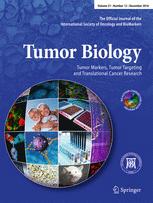 A company that indexes journals — thereby assigning them impact factors — has chosen to delist a cancer journal after it retracted 107 papers earlier this year for faked peer reviews.
A company that indexes journals — thereby assigning them impact factors — has chosen to delist a cancer journal after it retracted 107 papers earlier this year for faked peer reviews.
Starting July 19, anything published by Tumor Biology will not be indexed in Web of Science, part of Clarivate Analytics (formerly part of Thomson Reuters). Clarivate told us the decision was based on the fake reviews that took down more than 100 papers earlier this year. The problematic papers were released while the journal was published by Springer, not its current publisher, SAGE.
Without being indexed by Web of Science, Tumor Biology will lack an impact factor — which can be the kiss of death for many journals, since researchers (and institutions) often count on such metrics when applying for grants and promotions, so many will not submit work to a journal without one.
Here’s the statement from a Clarivate spokesperson [their emphasis]:
Continue reading When a journal retracts 107 papers for fake reviews, it pays a price
“The paper is extremely flawed:” Journal retracts article linked to vaccines
 A journal has retracted a 2016 paper after receiving criticism from outside researchers who raised concerns about its methodology and data.
A journal has retracted a 2016 paper after receiving criticism from outside researchers who raised concerns about its methodology and data.
The paper shares multiple authors with another paper that linked the vaccine for human papillomavirus (HPV) to behavioral problems in mice. Last year, a journal removed the study; later that year, the authors published a revised version in another journal. The latest retracted paper focuses on the antibodies present in a form of lupus.
Yehuda Shoenfeld at Tel-Aviv University in Israel, the corresponding author on both this latest retraction and the HPV vaccine paper, recently edited a textbook that explored how vaccines can induce autoimmunity in some people. He told us the 2016 lupus paper does have a link to vaccines [his emphasis]:
Continue reading “The paper is extremely flawed:” Journal retracts article linked to vaccines
Journal corrects paper by researcher sanctioned for misconduct
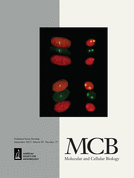 A biology journal has issued a correction to a 2014 paper by a researcher with 11 retractions, citing “inadvertent errors” that don’t affect the conclusions.
A biology journal has issued a correction to a 2014 paper by a researcher with 11 retractions, citing “inadvertent errors” that don’t affect the conclusions.
The researcher, Rony Seger, was recently sanctioned by his institution (The Weizmann Institute in Israel) following a finding of “serious misconduct” involving data manipulation. Specifically, the institute barred him from supervising graduate students, even future ones; his lab is now dedicated to replicating his previous work, with the help of a technician.
Last month, Michal Neeman, vice president of The Weizmann Institute of Science, told us she wasn’t sure how many additional papers by Seger would need to be retracted or corrected.
Recently, one more was revealed — in the August issue of Molecular and Cellular Biology, the following correction notice appears:
Continue reading Journal corrects paper by researcher sanctioned for misconduct